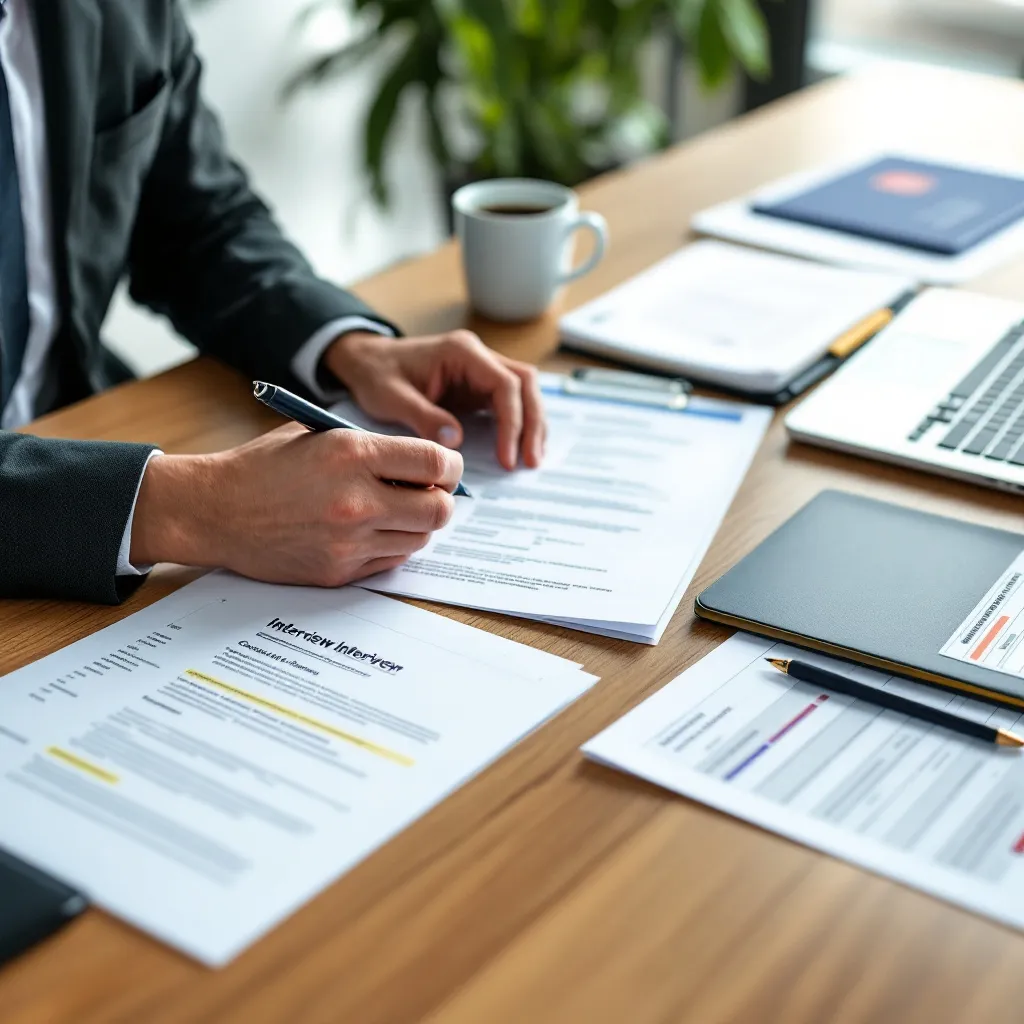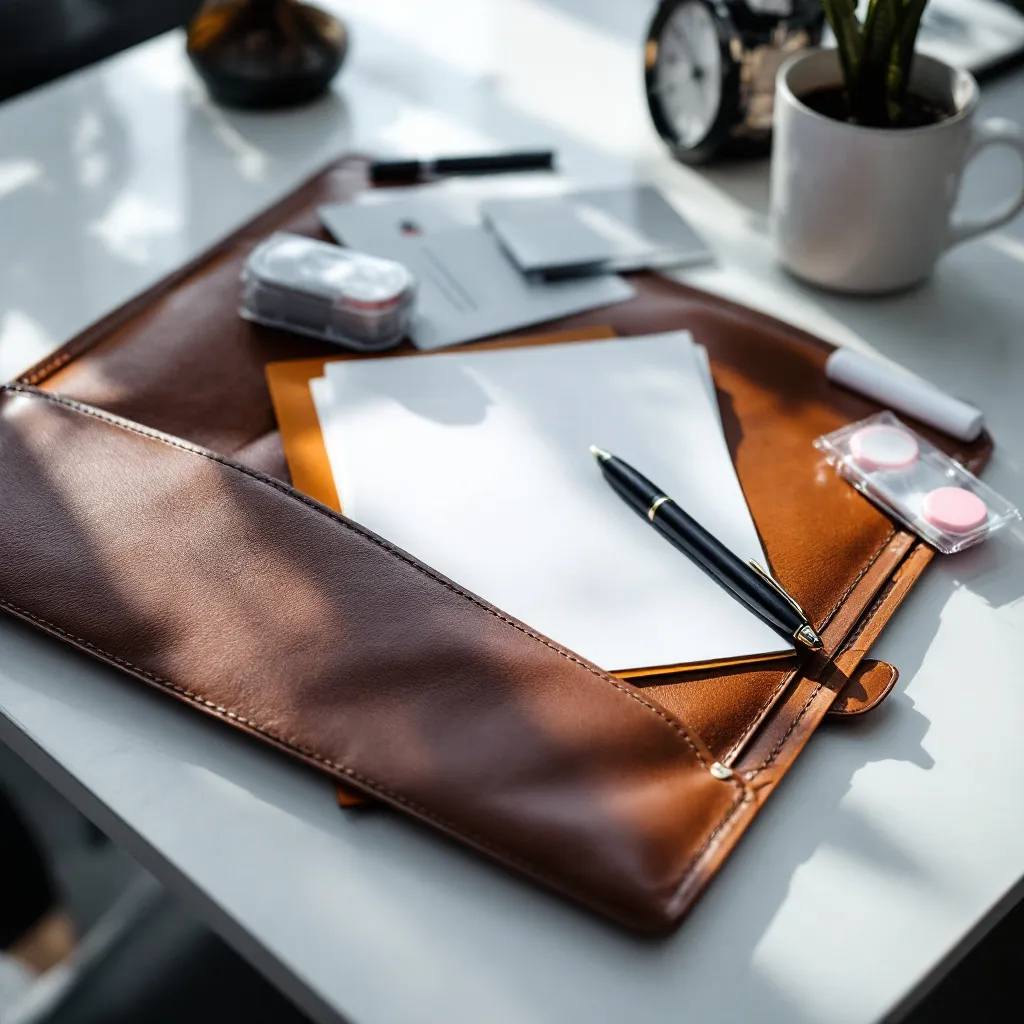Conducting effective interviews requires preparation, structure, and a systematic approach. This comprehensive interview checklist for hiring managers will help you evaluate candidates more accurately while creating a positive experience for everyone involved. Whether you’re an experienced interviewer or new to the hiring process, this guide covers everything you need before, during, and after the interview.
Pre-Interview Preparation Checklist
Thorough preparation is the foundation of successful interviews. Before meeting candidates, ensure you:
- Review the job description and key requirements to align your questions with needed skills
- Study the candidate’s resume, cover letter, and portfolio, flagging questions about employment gaps or skills alignment
- Develop a structured interview format with role-specific competencies
- Create behavioral interview questions using the STAR method (Situation, Task, Action, Result)
- Coordinate with team members to avoid duplicate questions
According to the Human Resources Checklist, proper preparation significantly improves the quality of your hiring decisions.
Essential Documents to Prepare
To maintain consistency and fairness throughout the interview process, prepare:
- Candidate evaluation forms or scorecards with 1-5 ratings for technical skills, cultural fit, and communication style
- Copy of the job description with highlighted key requirements
- Standardized interview questions and answers sheets for all interviewers
- Company information packet for promising candidates
These documents help create structure and ensure you’re evaluating all candidates against the same criteria, as recommended by Evaluation Strategies.
Interview Environment Setup
The interview environment significantly impacts candidate performance. ResuFit experts recommend these environment considerations:
- Book a private room with neutral decor and temperature control to minimize distractions
- Position chairs at equal height/distance to create comfortable dynamics
- Test all technology for virtual interviews well before the scheduled time
- Prepare water, notepads, and company materials for in-person meetings
- Allow buffer time between interviews for note-taking and mental reset
For virtual interviews, ensure your background is professional and your internet connection is stable. These environmental factors can significantly influence the quality of your interview, according to the Interview Environment Guide.
Effective Questioning Techniques
Your questioning strategy determines the quality of information you’ll receive from candidates. Consider these approaches:
| Technique | Example Application |
|---|---|
| Behavioral | “Walk me through a project where you overcame resource constraints” |
| Situational | “How would you handle missing a deadline due to team conflict?” |
| Cultural Fit | “Describe your approach to receiving feedback from a junior colleague” |
The behavior description interview technique is particularly effective for revealing how candidates handled real situations in the past. The Gartner Interview Framework suggests this approach provides the most accurate prediction of future performance.
Questions to Avoid
Be careful to avoid questions that could:
- Be considered discriminatory based on protected characteristics
- Be overly complex or technical if unrelated to job requirements
- Lead candidates toward a preferred answer
- Be answered with simple yes/no responses without demonstrating skills
Remember that better interview questions are open-ended and give candidates the opportunity to showcase their experience and problem-solving abilities.
During-Interview Checklist
Once the interview begins, follow these steps for a productive session:
- Start with a brief introduction about yourself and the company to establish rapport
- Clearly explain the interview process and timeline
- Maintain direct eye contact and use active listening cues (nodding, paraphrasing)
- Take meaningful notes focused on concrete examples rather than impressions
- Allow equal time for candidate questions about company initiatives and career progression
- Document real-time observations using the STAR or CAR framework (Context-Action-Result)
Using these best interview skills helps create a consistent experience for all candidates while ensuring you gather the information needed to make an informed decision.
Post-Interview Evaluation Process
The evaluation process is critical for making fair, unbiased hiring decisions:
- Complete assessment forms immediately after each interview while details are fresh
- Compare candidate responses to predetermined job requirements and competencies
- Gather feedback from all interviewers using a standardized format
- Compare candidates using weighted criteria: 40% skills, 30% cultural add, 30% growth potential
- Document the decision-making process for compliance and future reference
For an objective assessment, ResuFit recommends using a standardized scoring system across all candidates, as outlined in the Post-Interview Analysis guidelines.
Red Flags and Positive Indicators
When evaluating candidates, watch for these key signals:
Positive Indicators:
- Thorough preparation and research about your company
- Thoughtful questions about the role and organization
- Consistency between resume claims and interview responses
- Clear communication and ability to articulate experiences
Red Flags:
- Vague answers to basic interview questions and answers for freshers
- Inability to provide specific examples of past work
- Negative comments about previous employers
- Lack of engagement or enthusiasm during the discussion
Conclusion
A well-structured interview checklist for employers ensures you conduct thorough, fair, and effective interviews. By preparing properly, creating the right environment, asking effective questions, and evaluating candidates systematically, you’ll improve your hiring decisions and build a stronger team.
Remember that the interview process is also a candidate’s introduction to your company culture. By demonstrating professionalism and organization throughout the interview process, you’ll attract top talent who will contribute to your organization’s success.
With tools like ResuFit‘s AI-powered interview training, both interviewers and candidates can prepare more effectively, leading to better matches between talented individuals and the right positions.
Note: While this article focuses on interviewer preparation, candidates may also be interested in our guides on 100 interview questions and advice on casual clothes to wear to an interview.




